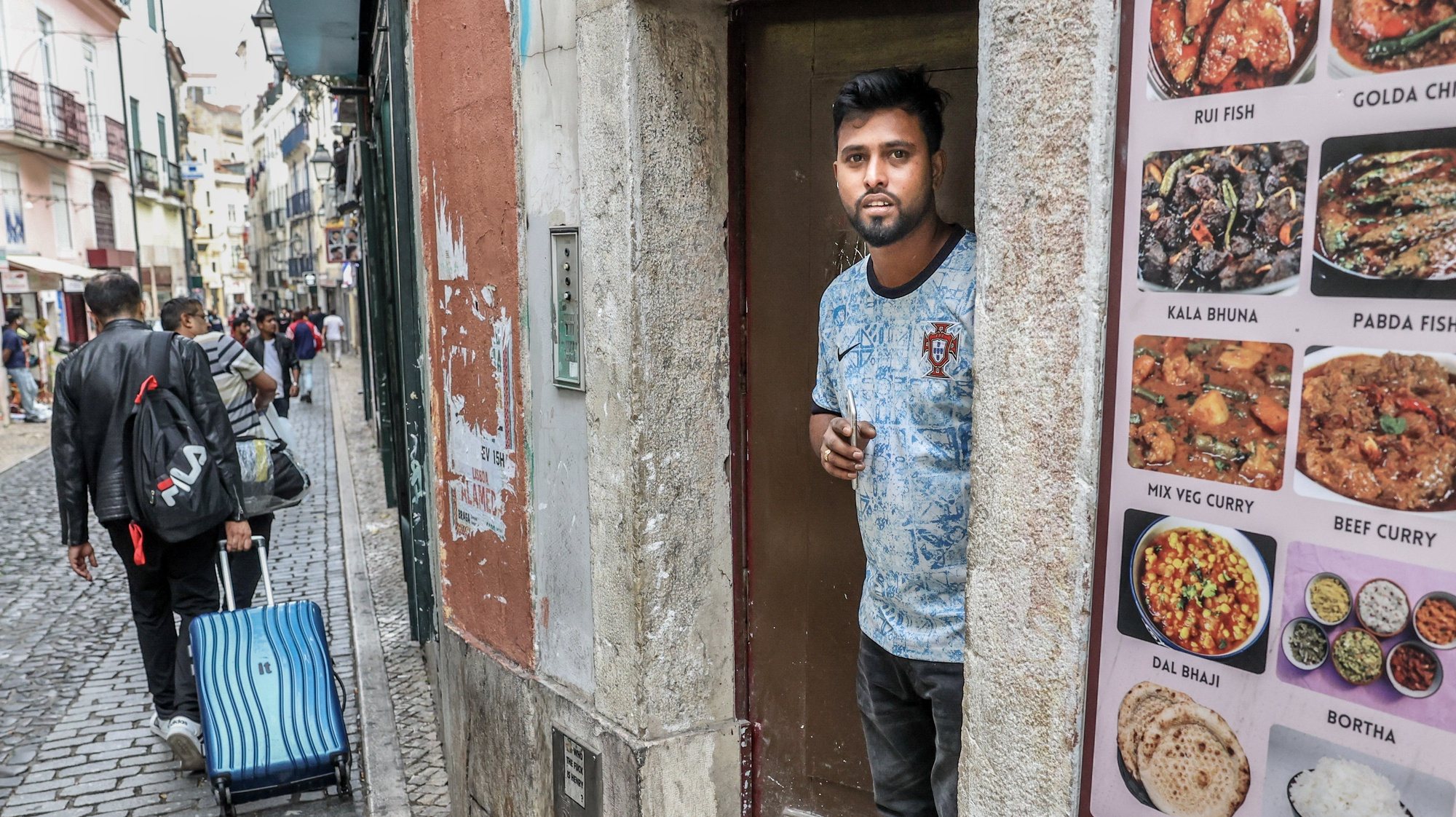Illegality caused by the end of expressions of interest, a legal mechanism that allowed foreigners with a tourist visa to become legal in Portugal, as long as they paid Social Security.
Changes to Portugal’s immigration law are worrying the Bangladeshi community, which claims many are illegal due to the government’s sudden decision to change the rules.
“There were many people who were already working, minding their own business, they were sleeping and from one moment to the next they realized that they could no longer express their interest,” Rana Taslim Uddin, community leader.
At stake is the end of expressions of interest, a legal mechanism that allowed a foreigner with a tourist visa to legalise his/her status in Portugal, provided that he/she made deductions to Social Security.
The Government announced the measure on the afternoon of June 3 and the new law came into force at midnight, blocking new expressions of interest and leaving thousands of immigrants who are already in Portugal paying but who have not completed the process in suspense.
“It was a law that was made suddenly, just a few hours passed between the council of ministers and its approval. [entrada em vigor]”It is a law that harms the community,” said Rana Taslim Uddin.
According to the director, due to the difficulty in scheduling appointments at the Agency for Integration, Migration and Asylum (AIMA), many immigrants waited to have “everything in order,” corresponding to 12 months of discounts, before beginning the process to legalize themselves.
Currently, “there are many who are in an illegal situation because there is a lot of confusion among us. Nobody understands how things work.”
Sohel opened a restaurant a few months ago on Rua do Benformoso, the centre of the Bengali community in Portugal, and is already having trouble recruiting staff.
“We have people who want to come here and now they can’t because there is no longer any expression of interest,” explained the businessman.
“When we heard that immigration changed the rules and papers were no longer accepted, people left here. I have seen a lot of people leave,” highlighted the investor, who admits the need to regulate the arrival of foreigners, but as long as entry channels remain available.
“After the change in the law, people have realised that they will not be able to stay here, even if they work and have been waiting for a long time,” said Sohel, who believes that the Portuguese are not aware of the importance of immigrants for the economy.
“Foreigners do jobs that nobody wants. If we leave, who will do these jobs?” he asked.
The changes in the law force immigrants to process procedures at the Portuguese consulates, whether for a work visa, job search or others.
But countries like Bangladesh or Nepal (another country that also has a large community in Portugal) do not have a Portuguese consulate and the promises of increased resources made by the Portuguese government do not include the opening of new diplomatic representations.
“We have been waiting for a consulate in Bangladesh for three decades,” even though the Asian country has had a representation in Lisbon since 2013, recalls Rana Taslim Uddin.
“We have already made several protests, many requests and we continue to ask for a consulate” in Dhaka that can facilitate migration processes, said the community leader who complains about the lack of openness of the Portuguese authorities.
Now, “when they need any visa, people have to travel to India, where there is a lot of bureaucracy and difficulties in accessing it,” which requires waiting times of several months.
“We have 50 thousand people in Portugal and it is a shame that there is no consulate in our country,” he lamented, highlighting that, despite everything, the community likes the host country.
“There are a lot of people who want to live here, they want to live in Portugal. They may even work in Europe but want to come here. People like Portugal and we feel good, despite the problems with the laws,” he explained.
However, without a consulate in Dhaka and without the possibility of regularization in Portugal, Uddin fears the return of illegal labor, controlled by dark interests.
“This could enter the circle of mafias that bring people and imprison them for work,” he said.
These fears also concern Sohel. “For now I want to stay here, but I don’t know what will happen later,” because it is necessary “to be able to invest and earn a living.”
Source: Observadora
